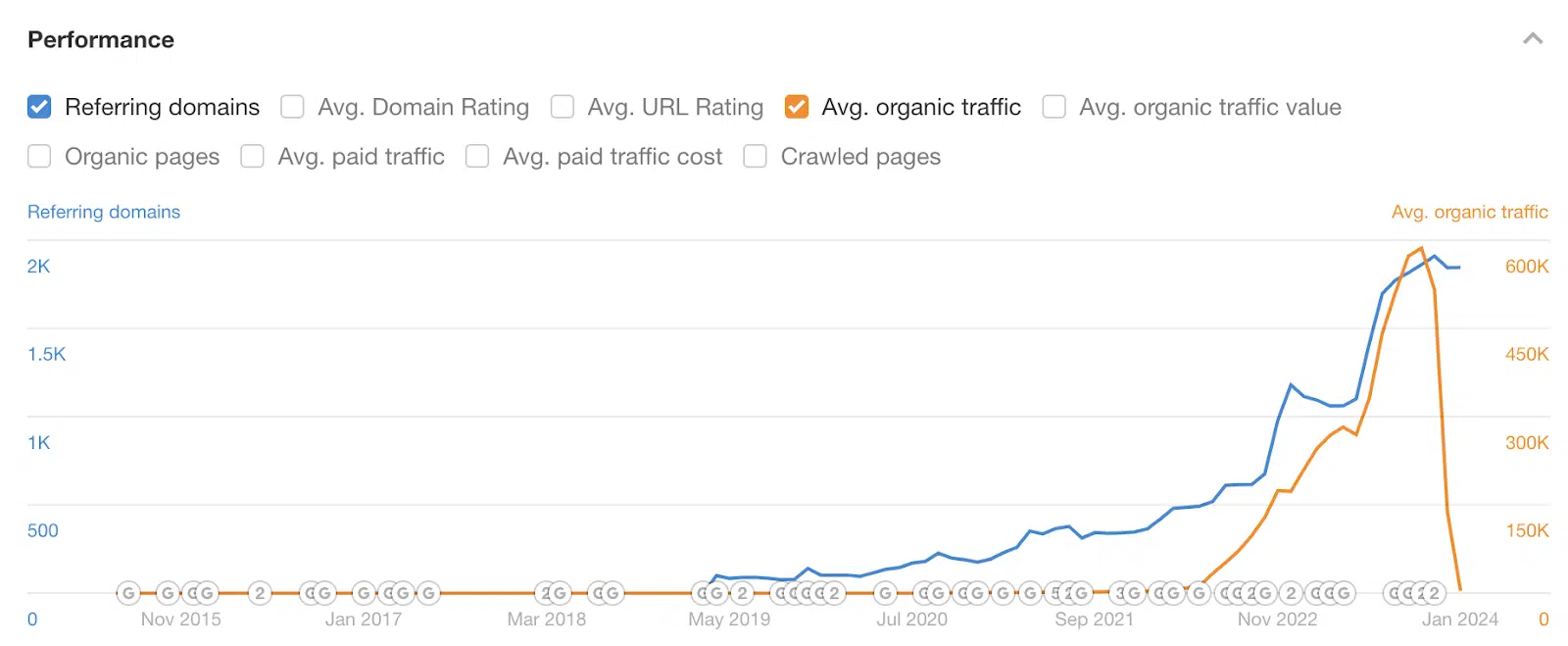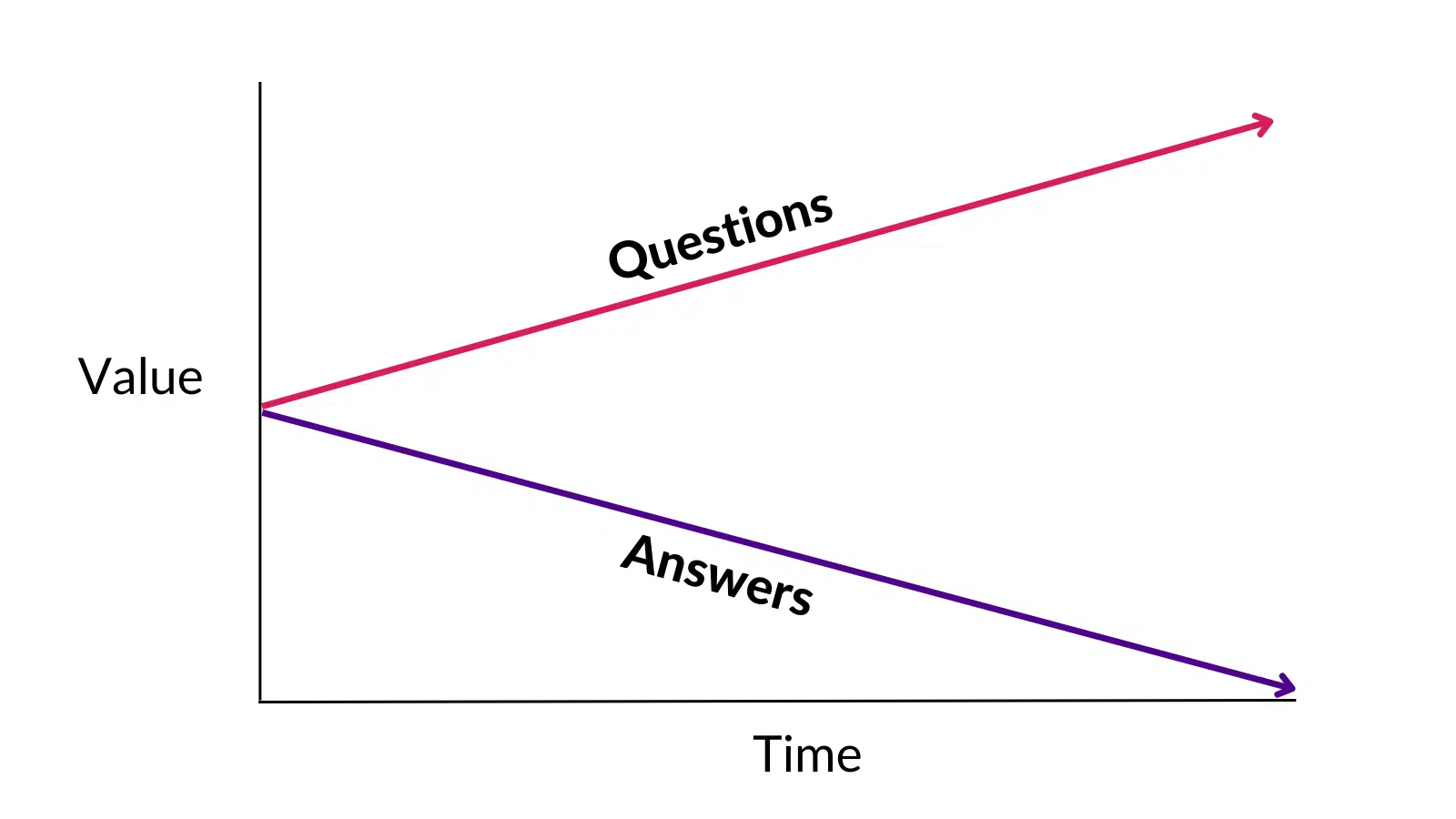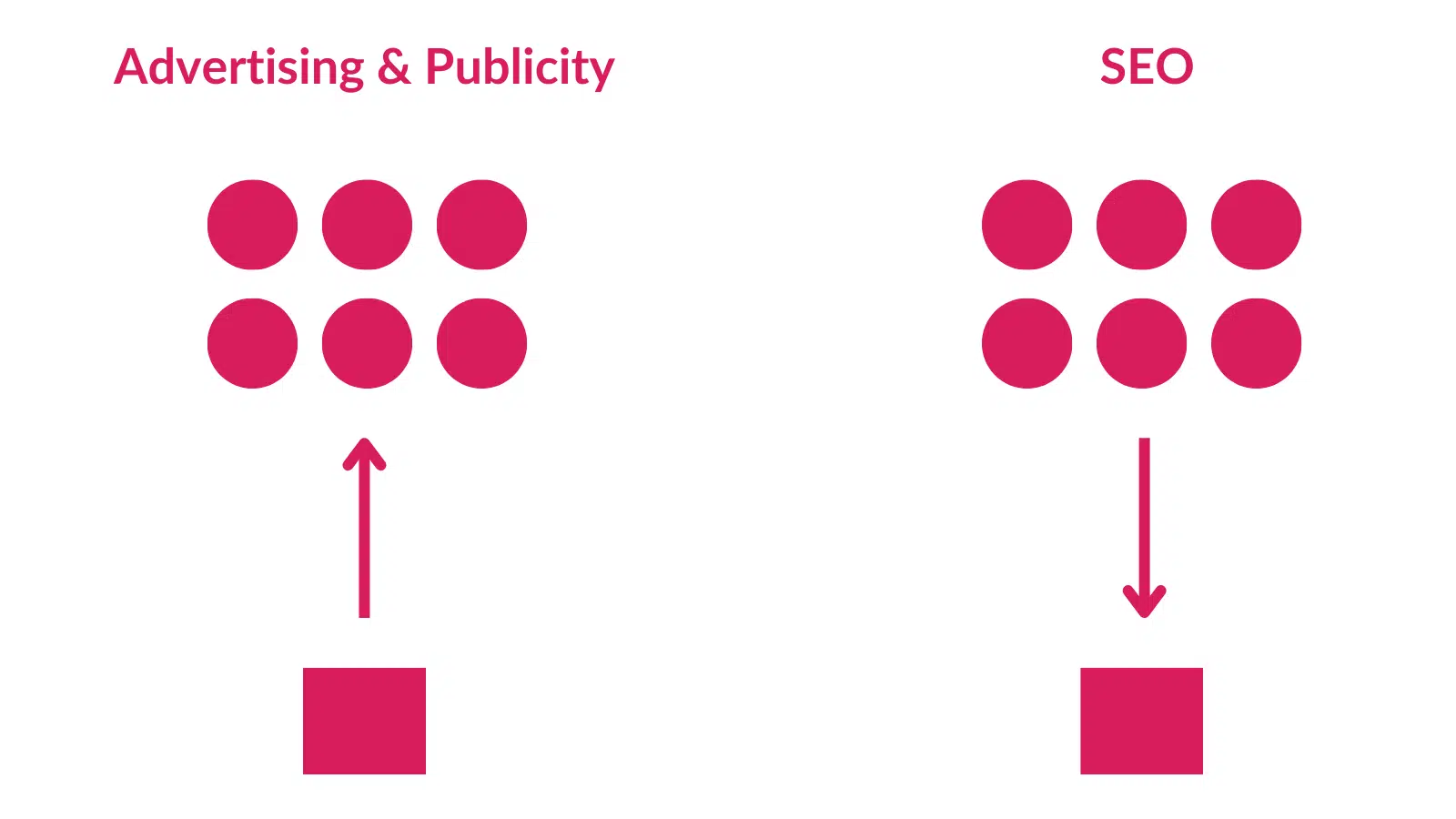by Andrew Holland for Search Engine Land
It’s been a few months since the great SEO heist went viral online.
You’ve probably heard all about it already.
But what you need to learn is the untold story.
Because that changes everything.
SEO robbery in broad daylight
I’m not going over old ground here, but in case you missed it, here are the details.
- An SEO copied a sitemap.
- He then used his AI content tool to recreate thousands of pages of copy.
- He gained over a million monthly visitors.
- He told everyone about it.
- They got a manual action.

As is the norm in the SEO world, some people cheered, and many jeered.
But the story that hasn’t been told is right under our noses.
The one about right and wrong.
The one about marketing effectiveness.
The one about freedom of information.
‘It’s my ball, and I’ll take it home if you don’t do as I say…’
We’ve all been there as kids.
You’re out playing ball, and when things don’t go how the ball owner wants, the kid gets annoyed and threatens to stop playing with us all.
In SEO, Google owns the ball.
It made a huge statement when Google “penalized” the SEO heist site (or its algorithms caught on).
Unchecked AI content at scale harms the web and should not be allowed.
And yet, deep in the darkest corners of Google, its scientists are about to do just that…
Unleash an AI-powered search engine that steals content and spits out content that is not checked by humans at scale.
But it’s OK because it’s their ball.
It’s “do as I say,” not “do as I do.”
They can steal content and mass publish unchecked content at scale, but this godly power is just for them. And if you don’t like it, build your own search engine.
But that argument might not hold up to scrutiny.
Dig deeper: Google’s shifting approach to AI content: An in-depth look
OpenAI, lawsuits and information
OpenAI, the firm behind ChatGPT, is facing legal action because people claim that its models were trained on content belonging to others.
Google is openly building a search engine much the same way.
This is where we can now tell the untold story of the Great SEO heist.
And it all starts with Thomas Jefferson.
Information wants to be free
In 2004, the late Aaron Schwartz wrote a blog post about how nature wanted information to be free.
In the article, he mentions a letter written by Thomas Jefferson in which he states:
“No one seriously disputes that property is a good idea, but it’s bizarre to suggest that ideas should be property. Nature clearly wants ideas to be free! While you can keep an idea to yourself, as soon as you share it, anyone can have it. And once they do, it’s difficult for them to get rid of it, even if they wanted to.
Like air, ideas are incapable of being locked up and hoarded.
And no matter how many people share it, the idea is not diminished. When I hear your idea, I gain knowledge without diminishing anything of yours. In the same way, if you use your candle to light mine, I get light without darkening you.
Like fire, ideas can encompass the globe without lessening their density.
Thus, inventions cannot be property. Sure, we can give inventors an exclusive right to profit, perhaps to encourage them to invent new useful things, but this is our choice. If we decide not to, nobody can object.”
This isn’t the direct translation of Jeffersons’ letter; it was Schwartz’s translation from old English to the modern-day language.
Some 20 years later, it would appear that Google, OpenAI and others have also agreed that ideas or information is free and not to be hoarded.
The language models and search engines can access and use your content to make something new, which does not diminish what you created.
But is this true?
That will be for a court to decide, but we continue as if it were.
Get the daily newsletter search marketers rely on.Business email addressSubscribe
Information is now a commodity
Education leader Tony Wagner says information is now a commodity.
In the past, we were all rewarded for our knowledge. Our certifications and school systems are based on proving what you know.
The web made knowledge easy to access.
But it did reward you for sharing this knowledge with others.
You got traffic, and search engines served knowledge.
AI makes information instantly available and usable.
But it’s not what you know. It’s what you can do with that knowledge.
And this goes back to the great SEO heist.
Just because we can do something doesn’t mean we should.
Marketing effectiveness must come first
The great SEO heist was nothing new.
Websites have been using cheap writers with no subject knowledge for years, all borrowing from content elsewhere to create a larger and better version of past articles.
All the heist did was remove the writers from that equation.
But was it worth doing?
I don’t think so.
The content didn’t align with the business model for the brand.
The site whose sitemap was robbed was an Excel training company. That content did matter to them and was business relevant.
But really, we’re delaying the inevitable. AI search engines are coming for your information and traffic.
All roads lead to the same logical conclusion.
Content is no longer a separator.
Dig deeper: How to prevent AI from taking your content
Knowing is obsolete

First published in 2014, in the book “A More Beautiful Question” by Warren Berger, the author states that questions are now more powerful than answers.
Questions lead to innovation.
It was inevitable that human information would become stored in a database that we could all access. There is simply too much information to remember, and our brains are quite poor at it anyway.
And this is where we head now.
A world where we gain information from databases. And a computer tells us the best information collected from the best resources.
But there is a tremendous upside for everyone that is being ignored.
Faster information gain, faster action
While many will be upset about lost traffic, the reality is that AI will reduce decision fatigue.
Just like we relied on Google for years, AI and AI-powered search engines will reduce decision fatigue, and we’ll come to trust what it says.
The top search results could become information with a few ads and organic references.
“Hey, Google, I need to book a hotel in London. Make it five stars, but find one under £500 for the night and near Covent Garden.”
“I’ve found three options here they are.”
“OK, I like the first one. Book a room for Thursday.”
“Your room has been booked, and I have sent an email with details to your inbox”.
Is this scenario a dream? I think not.
There is no need to read blogs listing 15 hotels and the various pros and cons.
And this will be the new battle.
The battle to be what AI references.
The battle for E-E-A-T.
The battle to be a brand.
Brand is the future of search

The great SEO heist merely pointed out an issue.
That we no longer own information.
The future is in faster decisions aided by AI.
The future is one of doing and building.
The future is us asking better questions that lead to innovation.
This is why, for some time now, I’ve said that brand mentions are the future of backlinks and publicity is the new SEO.
Telling LLMs and AI-powered search engines you exist is done the same way you tell the public you exist through brand marketing.
Creative advertising and publicity are the tools for the future of SEO.
If you want to rank, be discovered, recommended or referenced. You need to be known.
And that’s the core takeaway here.
That all the great SEO heist did was serve us all with a reminder.
Content through search will not be a valid strategy for many moving forward.
That’s not to say that content is dead.
New content that gains attention, gets read and is loved will always be needed.
We are a species of content carnivores.
It’s just that how we use content in SEO is going to change.
What does that future look like?
I think it’s one of innovation.
We don’t know because we aren’t there yet.
But for me, bring it on.
We’re well overdue for a change in SEO.
